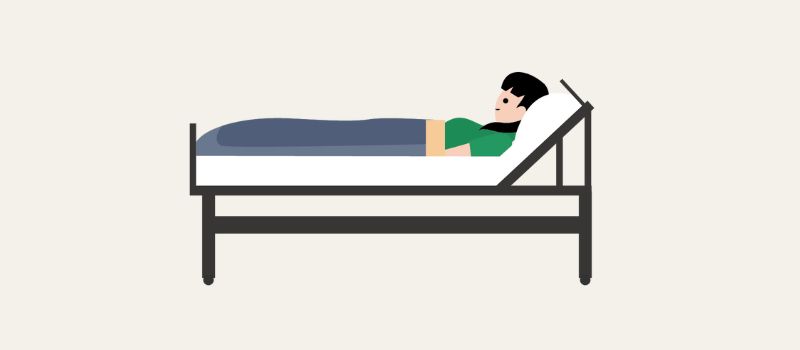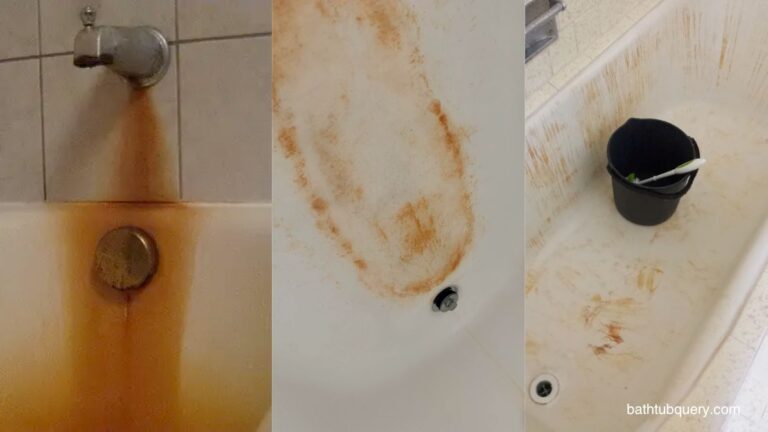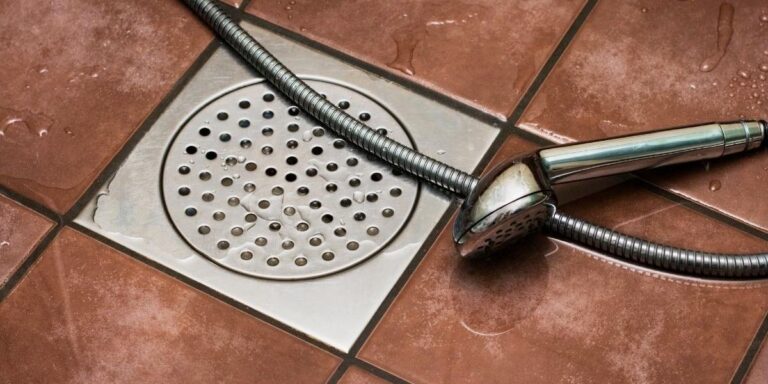Why Do I Get Itchy When I Lay in Bed but No Bugs?
It is quite usual to go to bed with the intention of getting some shut-eye, only to be kept awake by an annoying itch. Your first assumption might be that you have a pest infestation. But what if there are not any bugs around?
No one is immune to the perplexing question, “Why do I get itchy when I lay in bed, but there are no bugs?” Several factors, including internal reactions rather than outside influences, contribute to this phenomena.
Why Do I Get Itchy When I Lay in Bed but No Bugs?
Dry Skin
Dry skin is the most common cause of itchiness at night. With less moisture in the air and less natural oil production from your skin while you sleep, it’s a perfect recipe for dryness, which in turn leads to itching.
Allergies
Allergies are another primary culprit. Dust mites, though not visible to the naked eye, are ubiquitous in bedding. Their waste products can trigger allergic reactions, causing itchiness.
Dermatitis
Dermatitis or skin inflammation can also be to blame. Various forms like contact dermatitis or atopic dermatitis can cause you to feel itchy in bed after bath.
Health Conditions
Certain health conditions like kidney disease, liver disease, and some neurological disorders have been associated with nighttime itching.
Psychological Factors
Believe it or not, psychological factors also play a role. Stress and anxiety can lead to a heightened sensation of itching.
How to Combat Nighttime Itching?

Hydrate Your Skin
Hydrating your skin is essential to alleviate dryness that may be causing itchiness. Use a high-quality, fragrance-free and hypoallergenic moisturizer to nourish your skin. Apply it immediately after showering when your skin is still slightly damp to lock in moisture. Regular hydration throughout the day is equally important.
Control the Environment
Your sleeping area should be clean and free of allergens such as dust mites and pet dander. Regular washing of bedding can help, and you may want to consider hypoallergenic options. The air quality can also affect your skin; maintain a cool and slightly humid environment. If required, invest in an air purifier or a humidifier.
Medical Consultation
If your itching persists despite home remedies, consult your healthcare provider. Persistent itching could be a symptom of a condition more serious than dry skin, including eczema, psoriasis, or certain systemic diseases. Early diagnosis can help manage the condition effectively.
Manage Stress
Stress can physically manifest on your skin, including causing itchiness. Employ stress management techniques such as yoga, meditation, or mindfulness to reduce stress levels. Incorporating these practices into your daily routine can potentially alleviate skin irritation. Prioritizing self-care is not selfish; it’s necessary for overall well-being.
Why Do I Feel Itchy When Sleeping?
The phenomenon of nighttime itching is not uncommon. However, it can be attributed to various causes, which can be categorized into internal and external factors.
Internal factors include various health conditions or bodily functions such as:
- Circadian Rhythms: Our bodies follow a 24-hour cycle known as the circadian rhythm. During this cycle, specific bodily functions such as body temperature, cortisol levels, and skin’s permeability vary. At night, these changes can sometimes lead to itchiness.
- Medical Conditions: Several health conditions can cause itching, including kidney or liver disease, cancers, thyroid problems, and skin conditions like psoriasis or dermatitis.
- Psychological Factors: Anxiety, stress, and other mental health conditions can lead to a sensation of itchiness, particularly at night when your mind is not occupied.
External factors, on the other hand, are typically related to the environment. Some of these include:
- Beddings and Clothing: Materials that are too rough, hot, or contain allergens can cause discomfort and itching.
- Allergens and Irritants: Dust mites, pet dander, mold, certain fabrics, or laundry detergents can irritate the skin, causing itchiness.
- Environmental Conditions: Dry or humid air can affect the skin’s moisture levels, leading to itching.
- Pests: Insects like bed bugs, lice, or mites can cause itching through bites or infestation.
How to Prevent Nighttime Itching?
Preventing nighttime itching largely depends on identifying and addressing its cause. Here are some suggestions:
- Maintain Skin Moisture: Use a hypoallergenic, fragrance-free moisturizer, preferably one designed for sensitive skin.
- Choose Your Bedding Wisely: Opt for hypoallergenic, breathable, and smooth-textured beddings.
- Control the Room Temperature and Humidity: Avoid overly dry or humid environments by using a humidifier or air conditioner as needed.
- Address Medical or Psychological Conditions: If you suspect that a health issue is causing the itchiness, seek medical advice.
- Maintain Cleanliness: Regularly clean your beddings and use a hypoallergenic laundry detergent.
- Control Pests: If pests are an issue, consider pest control services.
FAQs
Can dry skin cause itching at night?
Yes, dry skin is a common cause of nighttime itching. Regular moisturizing can help alleviate this issue.
Are dust mites a potential cause of nighttime itching?
Yes, dust mites and their waste products can cause allergic reactions, resulting in itching.
Does dermatitis cause nighttime itching?
Yes, various forms of dermatitis, or skin inflammation, can lead to itching.
Can certain health conditions cause me to itch at night?
Yes, certain conditions like kidney disease, liver disease, and some neurological disorders can cause nighttime itching.
Can psychological factors cause nighttime itching?
Yes, stress and anxiety can cause a heightened sensation of itching. Stress management techniques may help.
Conclusion:
Nighttime itching can be caused by a range of factors, including dry skin, allergies, dermatitis, certain health conditions, and psychological factors. Ensuring your skin is well-hydrated, maintaining a clean sleeping environment, seeking medical advice, and managing stress levels can help mitigate the problem.
Read this articles:

Amanda has been designing and installing bathtubs for over 15 years. She first got interested in the bathtub industry while working as an interior designer right after college. During her years as a designer, Amanda was frustrated by the lack of high-quality, unique bathtub options for her clients. This passion led her to start her own bathtub website in 2009.







